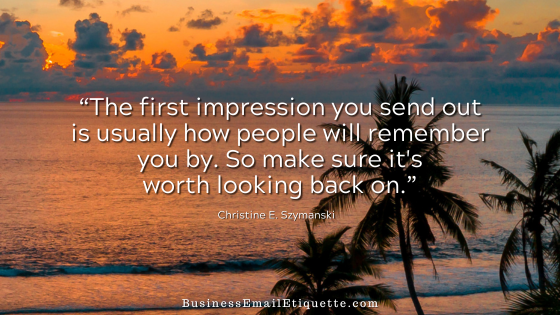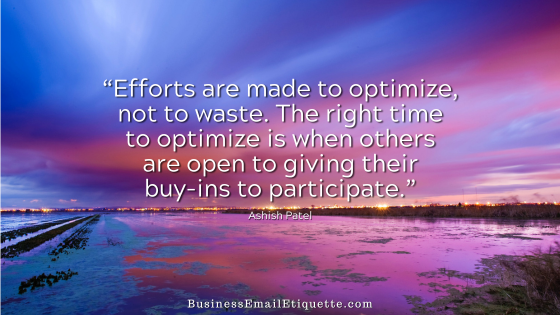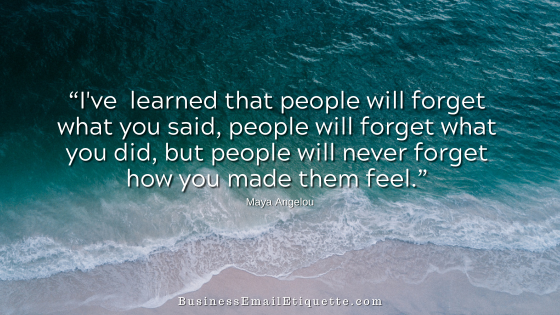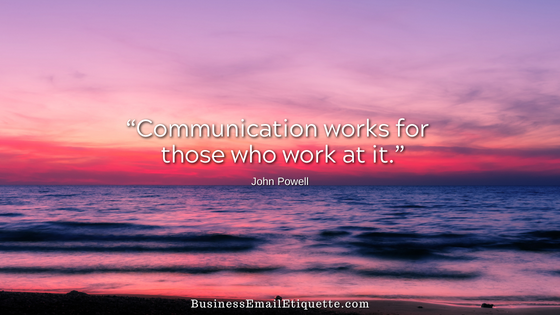5 Quick Tips for Business Email First Contact

You have one chance to make a great first impression when you initiate first contact in a business email. And due to spam and workloads, you probably have a higher bar to meet than in the offline world.
When you meet someone offline, they have limited time and opportunity to make an impression. (Or to override a preconceived perception.) Your first contact business emails have even less time. A scan of the title and the message, click to trash.
How quickly this happens (or not) depends on your approach.
Subconscious Decisions
You form an impression based on the person’s appearance, smell, eye contact, and body language. Making a quick or rash decision based on that impression can be wrong. Regardless, we do it all the time.
We’ve all experienced first impressions we realize later are wrong. After meeting and talking to the person, you determine they aren’t what you assumed. To presume this is also not a consideration in business communication is naive.
Now, think about your business email for a moment. There is no eye contact or body language. You don’t get to “see” the person on the other side of the screen to make any further determinations. The only “sense” you have to form an impression is the words in the email and how those words are used and structured.
Omissions can lead to misunderstandings, and overcompensating can lead to incorrect inferences about who you are and what it will be like to do business with. Therefore, it behooves you to do your best to control your message and its appearance to get the results and make the impression you desire.
So, how can you do that?
5 Common Sense First Contact Tips for Business Email
While these five steps are common sense, I am surprised how many who contact me for the first time do not include these vital basics. Whether they found my email address out there somewhere or are cold-calling through any of my website’s contact forms, many do not follow these guidelines.
1. Search a site first for the info you seek.
Try to see if there is a contact name to address personally. Don’t just jump for the contact link. Emailing for information already on a site or covered in detail makes you appear lazy. This approach also creates the impression that your time is more valuable than the person you contact.
2. Know what greeting to use.
A generic greeting certainly is not personal or impressive, especially when contact names are noted. Another example I get quite a bit is “Dear Team” when I am a sole proprietor. This indicates that they are not contacting me personally. Instead, they are contacting a website just to get their info in front of anyone.
3. Spell-check your email thoroughly to ensure there are no typos.
Twice. Don’t just rely on your spell-check. Read your email out loud to make sure the proper intent and tone are what you want to relay.
4. Include all the necessary details and information.
Be crystal clear about why you are making contact. Then, provide the details the recipient will need to determine whether replying to you is worth their while. Then, close with a courteous and professional sign-off.
5. A word about follow-ups.
A follow-up after the first contact is standard and customary. But following up day after day, week after week after week, gets annoying. Using systems that send out pre-created messages at certain times is tempting. But don’t overdo it. The last impression you want to make is one of the recipients groaning when they see you in their inbox—again.
Business Email Etiquette Basics
At the very least, the above tips are what you should consider in your first-contact business emails if you want to be taken seriously and increase the possibility of a response. Doing so will exponentially increase your chances of receiving your desired response.
Implementing these five little steps increases your chances of building solid relationships, allies, partnerships, and opportunities.






